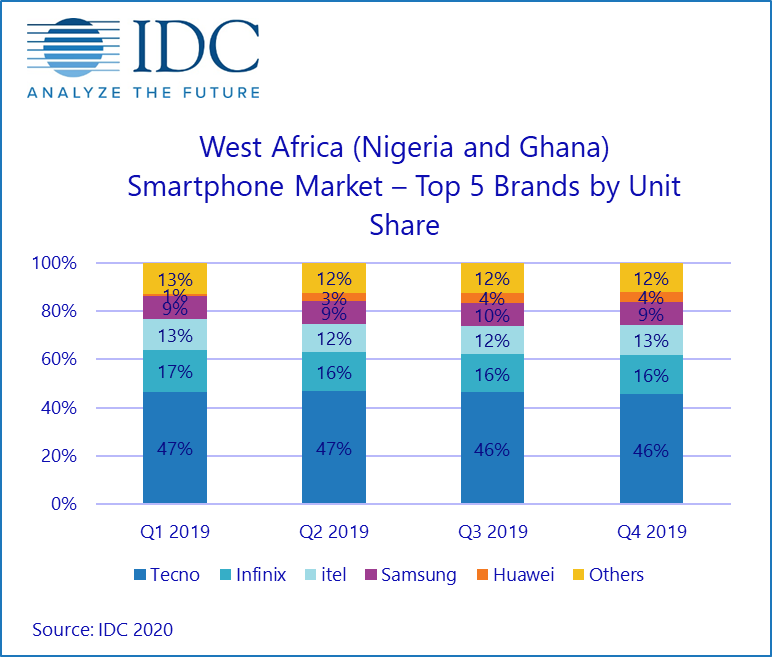Transsion’s factories in Bangladesh, Pakistan, India have been shut down.
Factories in China have reopened over the last three weeks as the production slowly returns to normal. According to a recent industry report, Chinese manufacturing activities expanded in March, compared to February. This signifies an acceleration in the resumption of production.
This sounds like good news for smartphone manufacturers since many are dependent on China for key components. Between late January and early March, most Chinese factories were on lockdown affecting the manufacturing needs of Transsion, Huawei, Oppo and Xiaomi. Even companies like Samsung that didn’t have manufacturing bases in China faced some disruptions since most phone components come from China.
But as China recovers, the pandemic is wreaking havoc in other countries and affecting manufacturing activities for Africa’s biggest phone brands. Among them, Transsion, owner of the Tecno, Infinix and Itel brands, is in a dicey position.

Outside China, it operates phone factories in India, Pakistan, Ethiopia and Bangladesh. In late March, three of these countries (India, Pakistan and Bangladesh) went into lockdown as COVID-19 cases escalated.
India has recorded 5,360 coronavirus cases and 164 deaths. On March 24, the government announced a 21-day lockdown on economic activities excluding essential services. This has affected most phone companies in the country including Xiaomi, Oppo, Samsung and Transsion.
Many of these companies have shifted the launch of new products until after the lockdown. People cannot also order new phones online because eCommerce companies are only allowed to deliver non-essential products.
This will affect production plans for Transsion and other companies in India and will probably shorten their global supply.
In March, Transsion opened a new manufacturing plant in Pakistan. According to the company, the Karachi plant operates three production lines and could produce three million smartphones a year.
But the country went on lockdown on March 23 and coronavirus cases have crossed 4,000. Everything from factories to mosques has been shut down.
Is Transsion putting hopes in Bangladesh?
Outside China, Transsion’s most promising manufacturing base in Bangladesh. The Asian country is one of the world’s leading garment manufacturers and other factories like phone manufacturers are benefitting from the semi-skilled workforce. Transsion makes 90,000 smartphones per month for two brands and produces around 450,000 devices each month. Vivo, Oppo, Samsung also make devices in the country.

Until late March, phone production continued in the country although the slow arrival of components from China threatened the supply chain. Transsion’s production rate was expected to 40% if the supply challenges continued.
“We’re failing to launch new products due to the shortage of raw materials… This situation will worsen if the crisis prolongs,” said Rezwanul Haque, CEO of Transsion Bangladesh.
While China is recovering, COVID-19 cases in Bangladesh have grown. The country has recorded 218 cases prompting a lockdown that is negatively affecting the country’s factories. US and European clothing brands have cancelled or suspended £2.4bn worth of existing orders from Bangladesh. Smartphone manufacturers are no exception.
This is a dilemma for Africa’s biggest phone maker. Its factories in three countries are sealed shut and its Chinese factory is performing below par. India and Bangladesh have also extended the shutdowns by a few days.
Only the Ethiopian factory remains. The government of the East African country is reluctant to impose a full lockdown because of the economic impact on people.
These could harm phone shipment to Africa.
According to the International Data Corporation (IDC) smartphone shipments to the continent will decline by 14.9% in the first quarter of 2020.
The impact is also going to be different for each region and country. For East Africa, smartphone shipments could decline 12.0% quarter on quarter for the first quarter of 2020. A further 3.0% drop is expected for the second quarter of the year.
For Nigeria, the drop could be as high as 15.4% in the first quarter and another 3.9% decline by the second quarter. The impact could be more as crashing oil prices puts pressure on consumer spending in the country.
Also, it is worth noting that the IDC’s reports pre-dates the lockdowns in India, Bangladesh and Pakistan. The original two weeks lockdowns in these countries have also been extended by up to one week.
In addition, India increased Goods and Services Tax (GST) from 12% to 18%. The change took effect on April 1, and it affects smartphone devices, forcing manufacturers to rethink pricing policies. These could affect forecasts even further.
What is Transsion doing?
Despite the supply chain problems, the publicly traded Transsion hasn’t issued a statement or guidance for investors. The company reported $3.6b in revenue last year, up from $3.2b in 2018; but did not warn investors about how the pandemic could affect its business.
Instead, marketing activities are still in high gear. The company has continued to launch new devices in a few countries while ramping up marketing for other devices. On April 2, it launched the Tecno Camon 15 and unveiled Wizkid as its brand ambassador. Meanwhile, Nigeria’s rising coronavirus cases prompted a two-weeks lockdown of three major states including Lagos.
The post Could Africa run out of new smartphones in 2020? appeared first on TechCabal.
from TechCabal https://ift.tt/3c4Jpo4
via IFTTT

Write your views on this post and share it. ConversionConversion EmoticonEmoticon